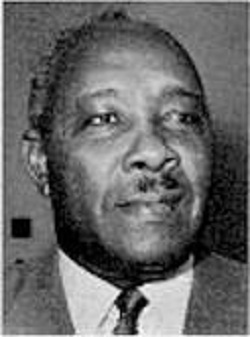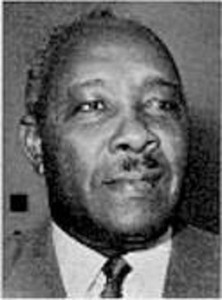By Nehi Igbinijesu.

If you have ever been to Victoria Island in Lagos, or to Wuse in Abuja, it is almost certain that you would have lavishly found some many semblances between both locations in their respective cities.
Dotted by prime housing, banks, eateries and shopping malls, Victoria Island and Wuse share deeper commonality- major roads named after one Adetokunbo Ademola.
As a matter of fact, Sir Adetokunbo Ademola was Nigeria’s first indigeous Chief Justice of the Supreme Court of Nigeria. Born in Abeokuta on February 1, 1906 to the prominent Oba Ladapo Ademola II, the Alake of Egbaland, Adetokunbo was tutored at St. Gregory’s College, Obalende and King’s College, Lagos. Having rebelled against his father’s wishes of becoming a medical doctor, he went on to study law at the University of Cambridge from 1928 to 1931 and was called to bar at Middle Temple in London in 1934 – the first African ever to achieve such a feat at the Bencher’s Inn.
Young Prince Ademola returned to Nigeria in 1934 to pursue a career in law working first as a crown counsel at the Attorney General’s Office and later, as an assistant secretary in the southern secretariat in Enugu, Eastern Nigeria.
Adetokunbo Ademola practised law from 1936 till 1939 when he was called to the bench as a Magistrate of the protectorate court. In 1949, He became the third Nigerian ever to be appointed a Puisne Judge. Upon the granting of autonomy to Western Nigeria; Sir Adetokunbo Ademola became the first Chief Justice of Western Nigeria in 1955 thus becoming the first indigene to head a judiciary in pre-independence Nigeria.
With the imminence of an Independent Nigeria, Sir Ademola was again appointed the first Chief Justice of the Federation in 1958. He was knighted by the Queen of England in 1957 and conferred with the national honour of Grand Commander of the Order of the Niger in 1958.
Worthy of note was Sir Ademola’s extremely influential role in keeping Nigeria from disintegration at the coups of 1966. After the counter-coup that ousted Aguiyi Ironsi, an Igbo Military Head of State, Gowon and his colleagues had thought to secede from Nigeria on the grounds that “the basis for Nigerian unity was not there.” What had not been told was that Ademola and the British High Commissioner had saved Gowon and Nigeria from the mistake of balkanisation by meeting with the northern leaders and successfully arguing that since the Northeners had taken political control and were now in government; they had no reason to leave Nigeria. The northerners stayed in Nigeria.
Chief Justice Adetokunbo Ademola served on several advisory boards and international committees including the United Nations International Public Service Advisory Board, the International Commission of Jurist and the International Olympic Committee among others.
Sir Adetokunbo Ademola died on 29 January 1993 aged 86.
So when next you drive on a major road named after Sir Adetokunbo Ademola, I guess it might make more meaning to you that there once lived a Nigerian who believed and laboured for a Nigerian unity that should even mean more to us today.


